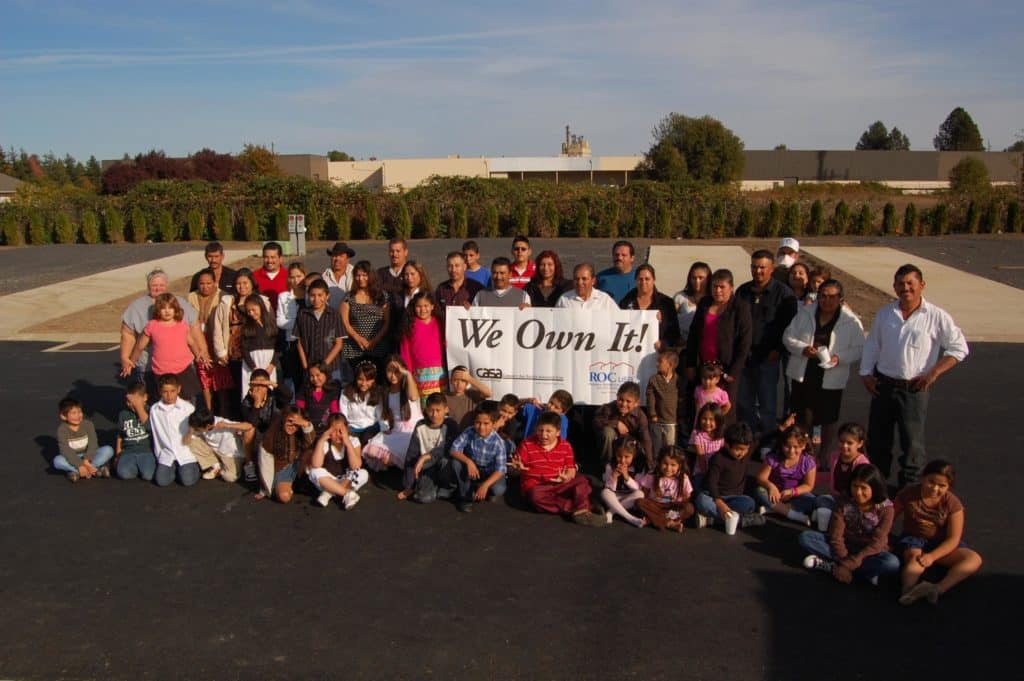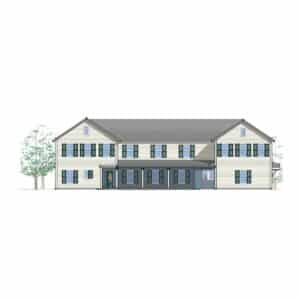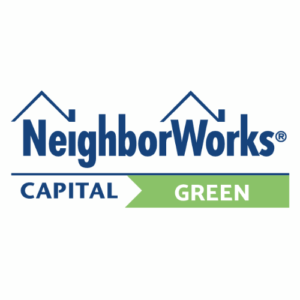The line of credit’s structure and 50% cash collateral were created by NeighborWorks Capital after talks with this long-standing Oregon-based nonprofit that supports Manufactured Home Parks
With a project deadline fast approaching, CASA of Oregon contacted NeighborWorks Capital in October 2019, to ask for a bridge loan on behalf of a manufactured housing park (MHP) cooperative they are advising. CASA is a Certified Technical Assistance Provider with ROC-USA, a national nonprofit who helps the residents of a manufactured home park take ownership and maintain long-term affordability. The bridge would help finance the co-op’s acquisition of the MHP until they secured state subsidies and a conventional permanent loan.
Once CASA explained that they will actually have a continuous need for this type of capital over the next few years, we began to discuss a $2 million enterprise-level line of credit that CASA could utilize over the next five years. While CASA draws on the LOC, these funds are loaned to the special-purpose entity that represents the co-ops (along with additional funds from CASA’s own revolving loan fund) to help the co-op meet their purchase and sale date in a timely manner.
“Our loan pipeline at the time made it difficult for us to fund the bridge loan without increasing our capital to do so. If we had not increased our capital, we were going to have to delay the timing of some of our other funding,” said Teri Smith, CASA’s Community Loan Fund Director.
CASA applied to NC in November, and we were able to close a line of credit for in mid-December. “Literally one day prior to the deadline of our project’s closing. It was instrumental in helping us to meet our year-end funding commitments,” Smith said.
CASA’s first draw from the LOC was $1.5 million, to fund half of a $3 million loan to the Mountain View co-op. CASA’s loan fund made up the balance of the bridge loan.
Supporting MHP Residents

CASA delivers pre- and post-purchase technical assistance (for the life of the permanent loan), training, and assistance with securing financing to help manufactured homeowners in Oregon buy their communities. They have helped parks as small as 23 lots, and up to 142.
There is a growing need to preserve this type of housing in Oregon. The median price of a home in Oregon is five times higher than the median household income ($56,119 in 2017), and is higher than all states except Hawaii, California, and Washington DC. While manufactured homes represent about 8% of Oregon’s total homes, it makes up 16% of the state’s affordable homes. However, high demand and low supply, especially in rural areas, threaten to increase those costs. The ROC model stabilizes these communities for the long term and helps residents decide on actions and control costs and can be a less expensive path to create affordable housing than building apartments, especially in rural areas.
Innovative Enterprise Structure
This enterprise line of credit structure is new for NeighborWorks Capital but reinforces our focus on flexibility. It will help CASA fund revenue-generating activities not tied to any particular project, nor requiring complicated deliverables or additional underwriting to fund the draw request.
MHPs are severely at risk of closures or rent hikes but are a critical source of affordable housing in Oregon. While the state law allows resident co-ops a first option to purchase their MHP when it is up for sale, there is limited time to organize, make an offer, and close, and the State’s funds are rarely available on those timelines. The LOC’s design allows CASA to close the purchase financing, and then later on a permanent loan as the state funds come in.
“We have structured it to provide flexibility to the customer, especially timing, because of the limitation from the permanent capital sources,” said NeighborWork’s Capital’s Senior Loan Officer, Tamar Sarkisian.
A New Solution: 50% Cash Collateral
The 50% cash collateral structure was created during talks with CASA. Because of the nature and liquidity of the asset type, we were able and willing be partially secured, only 50%, by the cash.
“NeighborWorks Capital is very flexible in looking at different options for collateral. We understand many lenders provide smaller, unsecured LOC’s; however, we provide larger enterprise lines of credit, so we need to consider securing these with non-traditional forms of collateral,” Sarkisian said.

CASA previously bridged acquisitions with their own capital. However, as they assist on more of these transactions, their limited financing resources are stretched. The cash-collateralized, flexible LOC from NeighborWorks Capital will allow CASA to reduce their own capital in each MHP acquisition. Fifty percent of the total line of credit amount will be secured by CASA’s cash. A major advantage of NC’s collateral structure is that the cash is held in an NC-controlled account, but only for the amount actually borrowed, rather than holding onto $1 million, regardless of how much CASA has drawn. For every draw request, CASA deposits cash totaling only half of the total requested draw amount. When the line of credit is paid down, NC will allow CASA to withdraw cash equal to half the total repaid, from the account. CASA can maintain their balance sheet strength and get a flexible and responsive credit facility.
“[The line of credit] will specifically help us to accommodate potential bridge financing needs of our manufactured housing park preservation projects without stressing our loan fund,” Smith said. “When necessary to meet closing deadlines in advance of other funding sources (subsidies) being available, we now have more dedicated funds to accommodate those circumstances. This significantly reduces the potential of losing an opportunity to preserve affordable housing due to stringent closing deadlines and funding availability not aligning.”
ABOUT
Community and Shelter Assistance Corporation of Oregon (CASA) is a nonprofit corporation founded in 1988 to address the housing needs of farm workers throughout the state of Oregon. CASA works to improve lives in underserved communities by serving as a development consultant to nonprofits building and renovating affordable housing and neighborhood facilities. CASA has assisted 15 resident cooperatives preserve affordability for owners, and are working on converting three more, which total will preserve affordable homes for nearly 1,100 households. Current housing development projects in process include 4 multifamily affordable housing projects, representing almost 200 units, and one HeadStart facility. They’ve expanded their services to include financial education, small-dollar loan products, and the provision of individual development accounts (IDAs) as an asset-building tool.
In 2015, CASA won National Community Reinvestment Coalition’s James Leach Award for our rural development work and asset building work. In 2009, CASA was awarded Opportunity Finance Network’s NEXT Award for advocacy. In 2019, CASA was featured in a segment on manufactured housing on John Oliver’s Last Week Tonight.











